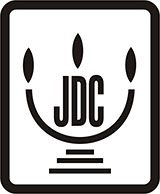
Mavoi Satum, Targum Shlishi Legal Aid Fund for Agunot, Jerusalem
Mavoi Satum (“dead end”) is an advocacy organization founded in 1996 that calls for justice, compassion, and change in the struggle of Jewish women whose husbands will not grant a get (Jewish writ of divorce). These women are known as agunot and mesuravot get. Mavoi Satum offers legal services to these women, and has helped hundreds of women obtain their get. Targum Shlishi helps support the organization’s legal branch, making it possible for Mavoi Satum to employ a lawyer. The organization has recently seen major breakthroughs and reports that awareness of the problem of get refusal is increasing rapidly.

ITIM: The Jewish Life Information Center, Online Resource to Welcome Girls, Jerusalem
A web-based resource for new parents, created by ITIM: The Jewish Life Information Center, helps families develop standardized Simchat Bat and Zeved Habat ceremonies to welcome the birth of newborn girls. The website is functional in both Hebrew and English, and allows parents to explore various traditions and rituals before building their own ceremony. The chosen ceremony is then assembled and e-mailed to the parents, and can be uploaded for other parents to review. ITIM is based in Jerusalem and is dedicated to making Jewish life accessible and empowering Jews in their experience of Jewish lifecycle events. Targum Shlishi supported the project as part of its core focus on women’s issues, as well as a long-time commitment to the development of accessible Simchat Bat ceremonies for Jewish families.

Lilith, Israel at 60: Introducing Selected Israeli Women’s Fiction in Original English Translation, New York
In honor of Israel’s anniversary, Targum Shlishi is supporting the Jewish feminist magazine Lilithin its initiative to translate and publish, both in the magazine and online, two short stories by Shohama Smit, an emerging Israeli author not widely known to English readers. The short story translation is part of a year-long look behind-the-scenes at Israeli culture and the women artists producing it. The idea for the translations were motivated in part by the paucity of Israeli women authors who are translated into English. Lilith is an independent Jewish women’s periodical founded in 1976. Lilith’s mission is to be a catalyst for action and an agent for change, challenging the Jewish community to rediscover and rework traditions, find excemplary role models, and work for inclusive social change.

Hadassah Brandeis, Creating Art, Promoting Change: Works by Jewish Women—The Exhibit, Multiple Venues
A new travelling art exhibit has been developed by the Hadassah-Brandeis Institute, with support from Targum Shlishi. The show, entitled Creating Art, Promoting Change: Works by Jewish Women—The Exhibit, consists of a number of double-sided panels that highlight the work of thirteen international Jewish artists and activists. By pairing artwork with descriptions about each artist, and including interviews with each regarding the relationship between their work and their activism, the exhibit both promotes social justice through the arts and addresses the frequent lack of recognition for women in the arts.

Miklat, Promoting Social Change—Halachic Booklet, Israel
Miklat is the only organization in Israel that provides shelter services for observant women escaping domestic abuse, and it is also the only Israeli organization that provides legal services to all women regardless of affiliation. In addition, the organization provides social work intervention, vocational training, and transition support for women in the shelters as well as education on domestic violence issues. Targum Shlishi’s support helped the organization print and distribute a halachic booklet that includes Biblical and Talmudic prohibitions against domestic violence. This educational tool, the first of its kind, is valuable when Miklat’s staff members meet with rabbis and others to discuss domestic violence within a halachic framework. As a result, Miklat reported that it is able to more effectively conduct outreach to Orthodox rabbis and to engage them in meaningful discussions. Working with Orthodox rabbis is crucial, as they are key community leaders with the power to change communal attitudes of secrecy around domestic violence and to help prevent abuse.

The American Jewish Joint Distribution Committee, Computer Lab for Jewish Girls’ School, Djerba, Tunisia
The communities in Djerba are the oldest continuous Jewish settlements in the world that have preserved a traditional way of life. Torah v’Hinukh (Jewish Girls’ School) serves 130 girls and young women in the tightly knit Hara Kabira community. Targum Shlishi’s support made it possible to establish a computer lab at the school.

WIZO, Passover Family Community Seder for Ramat Gan Orthodox Bar/Bat Mitzvah Program, Ramat Gan, Israel
WIZO is dedicated to advancing the status of women in Israel as well as providing for the welfare of all sectors of Israeli society and encouraging Jewish education. Targum Shlishi often supports WIZO initiatives. WIZO’s Passover Family Community Seder helps foster a sense of Jewish community and holiday spirit for participants and their families involved in a bar and bat mitzvah program in Ramat Gan.

